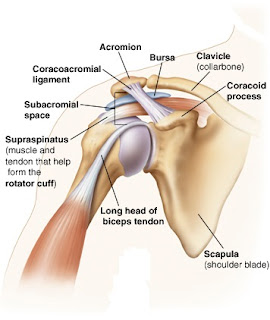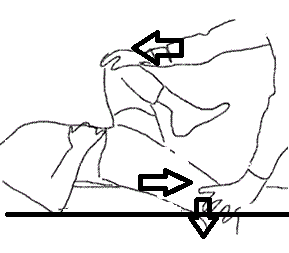Learn how to treat your Depression with best Physiotherapy techniques
“I am exhausted from trying to be
stronger than I feel…..”
“Sleep just isn’t sleep anymore, it’s
an escape…..”
“No amount of sleep could cure the
tiredness I feel…….”
“I’ll be alright, one day, someday,
just not today……….”
And many
more thoughts, emotions, feelings, fears. The unspoken truth, that ultimately
drags a person into a world in which there is no end to despair, loneliness,
distress, agony, pain, that we all in our common language call DEPRESSION.
Hello there,
This time I
am beginning with a series of mental health conditions and the role of
physiotherapy to overcome them. We all take care of our physical and
physiological health, caring about your body’s physiology is a very good thing
indeed but, ever thought of brain going through the same? As rightly said by my
teacher, brain also needs food just the way body needs. We never forget eating
food thrice a day, that’s absolutely normal, we feed our body to enable it to
work and if at all we fall sick, we take care of it quite well. Why don’t we
ever think about brain as a part of our body? I think it has equal right to
fall sick after overuse, trauma, and deficiencies just like our body do.
Physical dysfunction around us is socially acceptable. Why not a mental
dysfunction? This article will shed some light on the mental health issue known
as depression and how physiotherapy is helping people overcome this disorders.
Depression
is a type of mood disorder which results in feeling of misery, despondency,
dejection. A state of prolonged sadness which creates a feeling of heavy
heartedness and discouragement. The symptoms may appear as feeling of sadness,
anxiety, low energy, fatigue, restlessness, irritability, difficulty in
decision making, lack of focus and concentration, headaches, cramps, poor
digestion, lack of interest and suicidal thoughts in severe cases. Depression
may occur due to some personal and family issues, side effects of certain
medications, excessive workload and stress or major life changes.
We all know
that the common treatment protocol for depression till now is medications,
psychological treatments, maybe some counselling sessions or psychotherapy and
sometimes electric shock treatment. Can we think of some other alternatives?
Which are drug-free, pain-free and involves full participation of the person.
Here, physiotherapy might make the things easier. Let’s see how.
Several
hypothesis are made about physical activity and mental health. Physical
activity release neurotransmitters, the body releases chemicals called
endorphins under physical stress which help relieving pain and stress. There
occurs release of some other substances like dopamine, serotonin, which plays
an important role in mood regulation. Exercise cause increase in blood
circulation causing proper oxygen supply and nutrient supply to the blood which
results in mood regulation. Physical activities prescribed by a physiotherapist
is associated with improvement in the quality of life. It improves the physical
and cognitive functions boosting up the confidence and self-esteem. Physiotherapist
emphasizes on improving muscle strength, flexibility, cardiovascular endurance,
maintaining body weight, body mass index, reducing the chances of falls.
The exercise prescription to the person with depression is as follows, however
the major exercise prescribed in depression are aerobic exercises and strength
training.
·
Deep
breathing exercises.
Deep breathing exercises helps in relaxation. Can be done in a sitting
position. Relax your body completely, relax shoulders, take a deep breath,
inhale and exhale through nose. This can also be done by exhaling through mouth
(pursed lips).
·
Muscle
flexibility exercises.
The flexibility exercises includes stretching of muscles. It enhances the
extensibility of muscles and maintains the normal range of motion of major
joints in the body. These exercises can be done very easily on your own also
called as the Self- Stretching exercises.
·
Endurance
training.
Endurance is the ability to withstand fatigue and stress. It enhances the
ability of a person to remain active. Aerobic and anaerobic exercises help
maintain the muscle endurance, cardiovascular endurance and respiratory
endurance as well.
·
Relaxation
techniques.
Relaxations techniques are very useful for the peace of mind. It helps a
person to effectively combat stress. These techniques involves meditation,
yoga, deep breathing.
·
Muscle
strengthening.
Muscle strengthening exercises are important to overcome body weaknesses.
These are done with an external resistance provided while performing exercises.
It strengthens the muscles and joints and help relieve body pain and overcome
certain degenerative changes in the body. Causing an increased blood
circulation and blood pressure regulation. It helps to maintain metabolism in
the body. It helps improve mood and reduce depression, especially in older
adults, research from Harvard University.
·
Mobility
exercises.
These exercises improve the joint motion and function. It maintains joint
range of motion. These exercises can be used as a warm up.
·
Hydrotherapy.
Hydrotherapy means exercising in water. This is a beneficial way of
physical activity as water’s property of buoyancy help put less impact on
joints, water provides resistance in all directions to the body helping in
muscle strengthening. Under water exercises are beneficial for improving
respiratory function.
Adding all these forms of physical
activities to your routine will help you improve the quality of life. Distracting
yourself from negative thoughts, stress and overthinking is the aim of treating
a person suffering from depression. Engaging yourself in such activities helps
improve overall fitness, giving a major impact on your mind along with the
other parts of the body. Also, it prevents the re-occurrence of such mental disorders
by enhancing the secretion of certain hormones and chemicals in the body which
improves mental health, emotions, thoughts and mental activities.
Find a better way to deal with such issues in life, other than any of the
high dose pills and electronic machines. Physical activity always increase your
self-esteem and self-confidence as it is a kind of self-management which
enables you to assess yourself on your own, work on yourself on your own and
see the difference. This fact is not yet known by many of us about the ability
of physiotherapy to cure mental diseases along with physical. I hope after
reading this article, you can have a fair idea about the role of
physiotherapists in improving mental health along with physical. If you
associate yourself in anyway with this article, talk to your physiotherapist
and get a prescribed exercise protocol.
Work for your own mental well-being.
Take Care,
Jasrah.




Comments